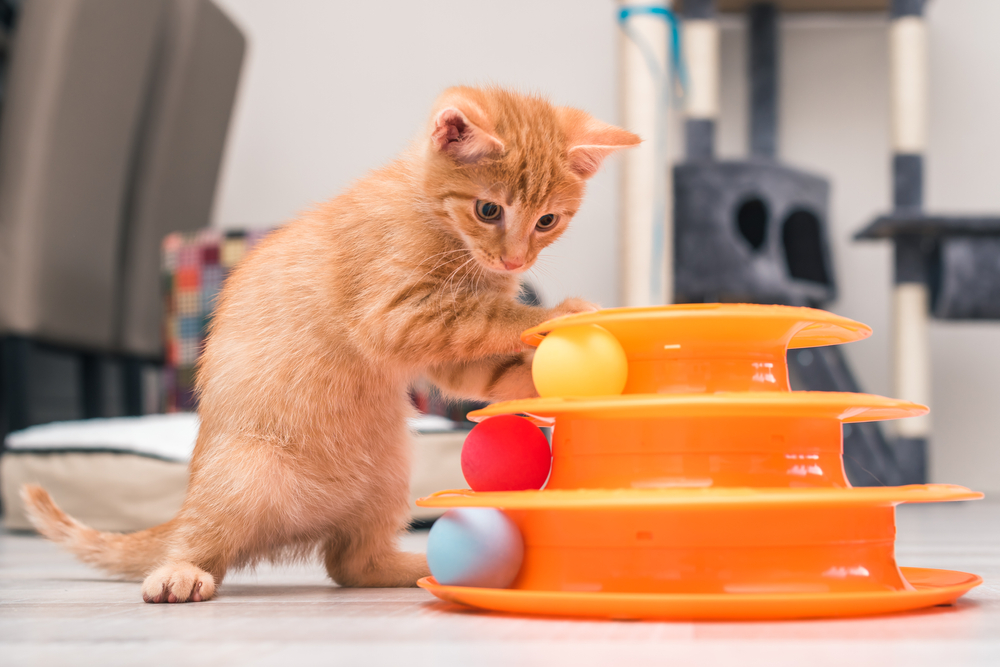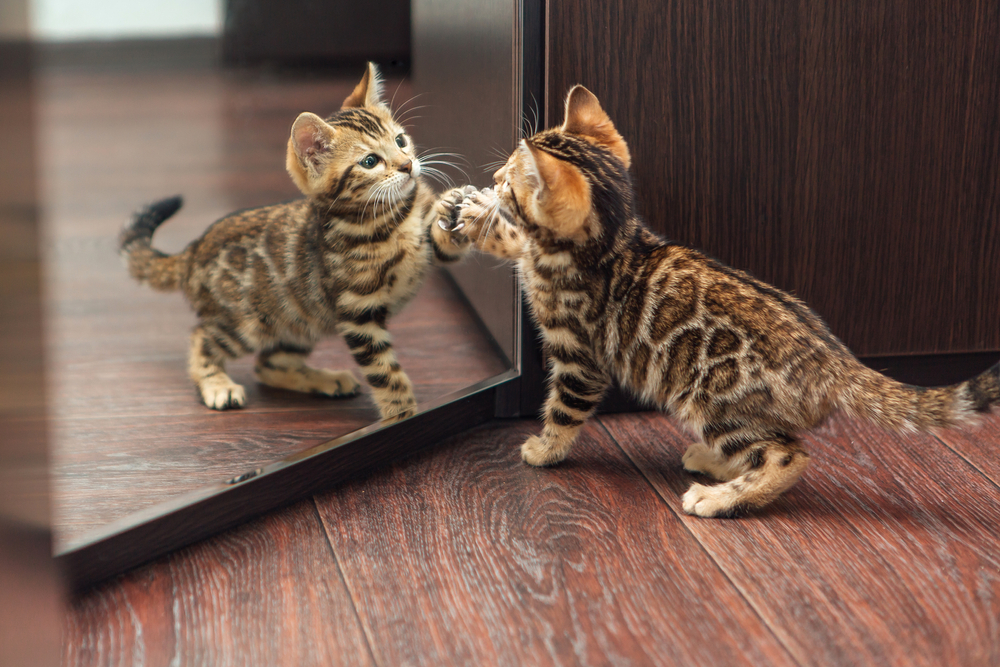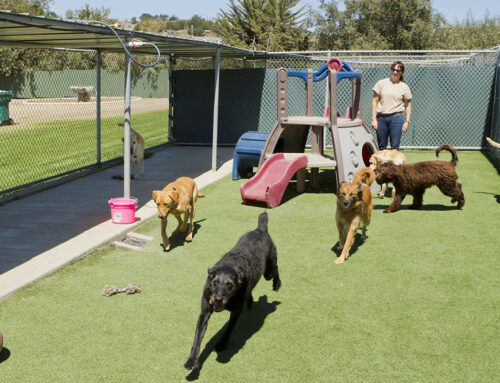Few things are cuter or more fun than a fluffy little kitten. But, along with the fun comes a great responsibility to provide your new kitten with everything they need to succeed in life. Adult cats are frequently surrendered to shelters because of behavior problems, but if you pay close attention to your kitten’s physical, social, and emotional needs, you can prevent many issues and help your cat become happy and well-adjusted. Here is our Memorial Villages Animal Hospital team’s essential kitten-raising guide for pet owners.
Preparing to bring home your kitten
Before you bring home your new pet, you need everything in place for their arrival. Whether you have other household cats, or this is your first, set up a separate resource station exclusively for your new addition, which will facilitate their confinement and help prevent competition and stress if you have other cats. At a minimum, you’ll need the following:
- Food and water bowls
- Kitten food
- Toys
- Grooming supplies
- Treats
- Litter boxes
- Unscented litter
- Scratching posts
- Cat tree or perch
- Bed or soft-lined hiding place (i.e., box or basket)
Helping your kitten settle into the household
When your kitten first arrives, you should keep them in a smaller house area, apart from other pets, and introduce them slowly and positively over the next few days or weeks. Work on establishing a daily, stable, predictable routine, with regular feeding, play, training, and grooming sessions. Once your new kitten settles into this routine and reliably uses their litter box, you can gradually expand their access to other house areas.
Veterinary care and nutritional considerations for kittens
Veterinary care is a key component to ensuring your cat’s overall health and wellbeing. Their first visit should take place shortly after arriving home, to start vaccinations, deworming, and parasite control protocols. Then, plan to visit the veterinarian for check-ups and boosters every few weeks until your kitten reaches 4 months of age, and to return for a spay or neuter procedure around 5 to 6 months of age if this procedure has not been performed already. We recommend spaying or neutering all cats to reduce undesirable behaviors, cat overpopulation, and potential reproductive health issues.
Our veterinary team can also help you assess your kitten’s nutritional requirements and to choose an appropriate food based on your preferences and your cat’s needs. Cats can be picky, so we also recommend exposing young kittens to multiple food and treat flavors, types, and textures, so they will better accept food changes later in life.
Training and socialization for your kitten
Many cat owners overlook this aspect of kitten care, assuming that cats don’t need training or socialization like dogs. However, studies show that socialized and trained kittens grow up as friendlier adult cats who are more accepting of new people and adaptable to new experiences. Most importantly, socialized cats are less easily stressed by everyday occurrences and make better overall companions.
The most important time for handling kittens and exposing new things in a positive way is between 2 and 7 weeks old, but you should continue providing these opportunities until your kitten is at least 14 weeks old. Ask our team about kitten kindergarten classes in your area, consult a trainer, or check out kitten socialization bingo for help. You can start training kittens at any time with short, daily, positive-reinforcement sessions that work on basic commands, carrier acceptance, cooperative grooming, toothbrushing, appropriate scratching, and other helpful life skills.
Meeting your kitten’s essential needs

According to the American Association of Feline Practitioners (AAFP), cats and kittens require five basic needs to keep them healthy, strengthen your bond, and prevent many health and behavior issues. Your cat’s needs include:
- Access to resources — Each household cat needs separate food, water, litter, sleeping, and scratching areas.
- A safe space — Cats prefer secure, soft, elevated sleeping and resting areas to survey their territory.
- Play and predatory behavior — Play with wand toys and other objects that simulate hunting and catching prey is crucial.
- Predictable human-cat interactions — Keep a consistent schedule and provide positive, predictable interactions, such as a daily play or petting session. Never yell at or punish cats.
- Respect for cat senses — Strong odors, including scented litter or air fresheners, are offensive to cats. Your cat uses pheromones and scents to mark their territory, and you should avoid frequent cleaning of familiar items.
Our essential kitten-raising guide can ensure your kitten gets the best start in life. Plan to schedule their first veterinary visit shortly after you have brought them home and they have had a few days to adjust. Call us to schedule an appointment with our Memorial Villages Animal Hospital team, or with your questions or concerns about your kitten’s health and wellbeing.









Leave A Comment